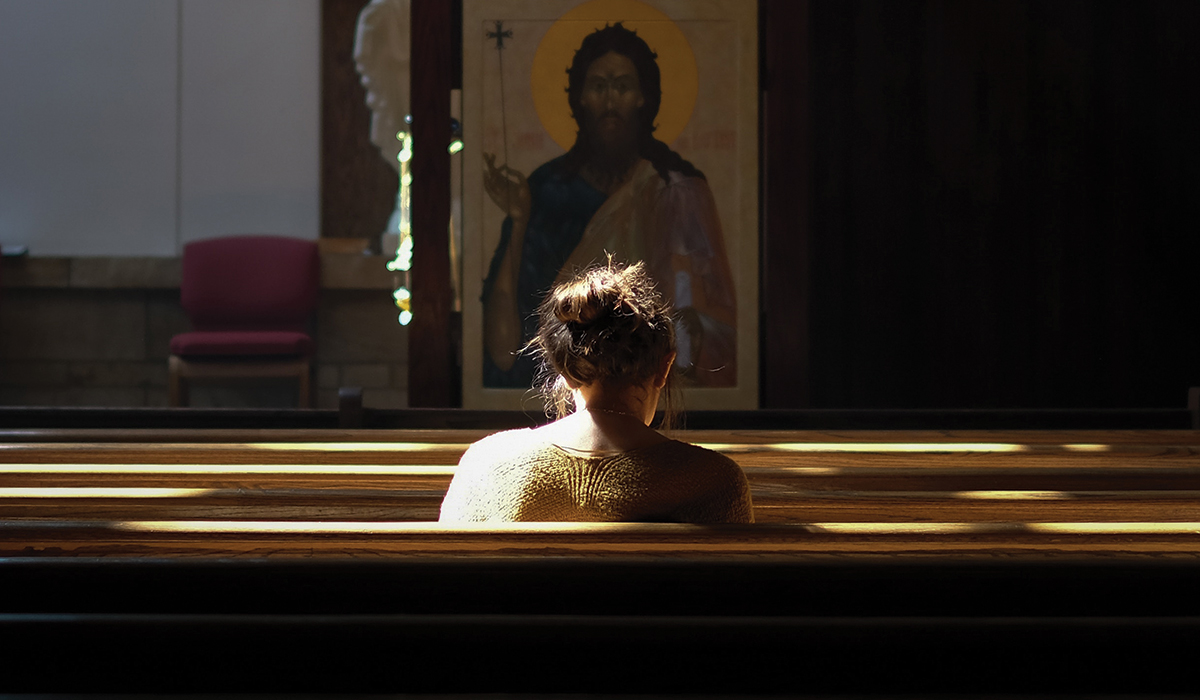Defiance and Healing from Spiritual Abuse

This week, Rachael Clinton and Dan Allender conclude our series about spiritual abuse by exploring the long, slow movement of healing in the wake of abuse and the work of tending to small areas of growth, while trusting that God is contending for us in the big areas. But first, they invite us to pause for a moment to check in with how we’re holding this painful material. If spiritual abuse is part of your story, it’s possible that this content might be re-traumatizing if you are not in a place of tender kindness as you listen. Would it help to go for a walk before diving back in, or to make some tea and spend a moment feeling the ground beneath your feet?
Dan: “A lot of what’s going to be needed is somatic. Meaning, you’ve got to bring your body to deal with your body. But sometimes you’ve got to have almost a map to be able to mess with returning to your body.”
That ability to check in with ourselves is a crucial discipline anytime we are discussing dynamics of abuse and trauma. And it’s an important reminder before this episode, because our journey toward healing will eventually be obstructed if we are not able to reflect on this material and recall our experience from a place of kindness. To be able to pause, reflect, and change directions when we find ourselves dissociating or turning toward contempt—that is a profound act of courage. And this is a process that invites for—and requires—a commitment to being present in and listening to our bodies. That might mean digging up the roots of shame that prompt silence, and the places of fragmentation that foster a deep mistrust of our bodies.
You’ve got to count the cost as you separate yourself from that world, and it’s going to open up a vast need for care, support, safety.
Dan: “The abuser and abusive community have taken somebody who is likely already bound to a long and heartbreaking history of shame. Then they have woven shame in and through the performance demands.”
Rachael: “Part of what has to be cultivated is a return to trusting your desire and your goodness.”
For many people, once you break away, find safety, and begin to reflect on your experience, that’s when a whole new level of isolation begins to kick in. The agony and injustice of your experience comes into a clearer light, and often shame-based messages of complicity and blame grow louder. That’s when the movement of healing often calls for a posture of defiance—an ability to say “hell, no” to the shame and contempt that thrive in the wake of spiritual abuse.
Dan: “The recuperative process is not just slow, but it’s going to be at times agonizing. […] If there’s not a growth of defiance, shame will eventually encroach and begin to take back all the terrain from this stand against, this movement away to ponder and open your heart.”
Rachael: “Healing takes time. That can feel so frustrating. There’s so much that’s been lost, and the desire to reclaim and get to live into abundance and freedom is so palpable. And healing is a process that takes tending to the small, and trusting that God is going to contend with the big and mend.”
This courageous, defiant work of healing so often must unfold in small, quiet ways. This might mean going for walks, doing yoga, touching trees and dirt to let your senses more fully engage the world around you. As we attune to that which is beautiful and true, and to that which honors the dignity in who we were created to be, we may begin living into the hope that trauma, death, and spiritual abuse do not have to have the last word.
Rachael: “Can you trust that, even if you can’t feel connected to God, the God of the universe is at work on your behalf? Grace is grace, it comes, is coming, will continue to come. I think sometimes we need to know there’s that kind of groaning Spirit rest for us, when we do not have words to pray, when we don’t know how to pray.”
Dan: “These are the small things that may not seem like very much help, but in their accumulation, in their array and plethora, it becomes a form of treating your body with a new lavishness that is part of the kindness of God. And we really do believe that it is the kindness of God that restores.”
